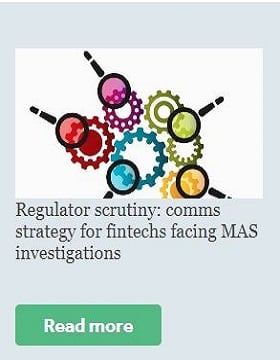
Healthcare Reform In China: How Healthcare Brands Can Engage With The Government

How to gain traction with the New Zealand media as a foreign company
Public Affairs Tracker: Singapore’s Priorities in 2022, and How Businesses Must Adapt

By Hetty Musfirah, Account Director in Singapore. Hetty has more than 14 years of experience in spearheading communications and engagement strategies on trade issues in APAC and global markets, and with industry players from a diverse range of sectors including technology, health and energy.
Singapore’s economy rebounded strongly in 2021, emerging from a pandemic-triggered recession- the worst contraction since independence. This year, the country is looking forward to a steady recovery, with GDP growth expected to come in at 3% to 5%. In delivering his first Budget statement, since taking on the role as Minister for Finance, Mr. Lawrence Wong said Singapore is moving ahead from the position of strength, and that the country will “chart a new way forward together”.
For a small-city state like Singapore, it is crucial for the country to remain open and strengthen its status as a trusted global business hub. This is how it can continue to distinguish itself in an uncertain global environment that is becoming more unpredictable- against a backdrop of an Omicron-fuelled surge in COVID-19 cases worldwide and escalating geopolitical tensions in Eastern Europe.
Accelerating transformation for growth

For businesses, the need to stay nimble, transform and build up new capabilities is key to thriving in fast -evolving environment. They must also ensure that their workers are also equipped with skills that will enable them to stay relevant in an increasingly digital world. Hence, more resources are being poured to spur on transformation that will enable more companies to unlock greater opportunities and strengthen Singapore\’s presence as a global node of technology, innovation, and enterprise. For example, the government is pumping in an additional $200 million over the next few years, to enhance schemes that will help businesses and workers build digital capabilities. More must also be prepared to enable local businesses to seize opportunities outside of Singapore. The new Singapore Global Enterprises initiative for example, will aim to provide bespoke support to enable larger local enterprises to forge partnerships, expand and reach new markets overseas.
Fuelling the green transition

Tackling climate change is also high on the agenda for Singapore. The country is now looking to achieve net zero emissions by or around mid-century, and plans are underway to consult stakeholders in developing a revised Long-Term Low-Emissions Development Strategy (LEDS). It was also announced that the carbon tax will be raised from the current $5 per tonne to $25 per tonne in 2024 and 2025, $45 per tonne in 2026 and 2027, before reaching $50 to $80 per tonne by 2030. The higher carbon tax reflects the government’s firm stance to accelerate the green transition in the country and its strong commitment to global efforts in tackling climate change. Businesses will therefore need to do their part, acting more aggressively to cut emissions or be prepared to pay a hefty price for inaction. Leveraging on innovative green technologies must be a core focus in a company’s robust sustainability strategy. Companies can however look forward to a transition framework, to support them in managing their costs as they make the adjustments in their journey to decarbonise. There will also be growth opportunities to be captured in green sectors such as green finance as Singapore also sets its sights to become “the go-to location in Asia for expertise in carbon services”.
Building an inclusive and resilient future

Separately, in ensuring that the country attracts quality talent that can work together with Singaporeans to compete as a team globally, the government will also raise the minimum qualifying salaries for Employment Pass and S-Pass holders, from September. While this could mean increasing costs for businesses, it also reiterates the need for companies to reassess their processes, transform, leverage technology while constantly upskilling their workers to stay competitive. Companies would also need to adapt as Singapore take steps to strengthen its tax structure. This includes plans to make changes in the corporate tax system, and with the Goods and Services Tax (GST) slated to increase from 7% to 8% on 1 January 2023, and from 8% to 9% on 1 January 2024.
Key Takeaways
As Singapore looks to build a more sustainable and resilient future for generations come, businesses would have a growing role to play in accelerating the transformation needed to propel the country forward and for Singapore to emerge stronger in a post-pandemic era. Should your company be keen on stakeholder engagement strategies, or want to find out more about how your company will be impacted by the different measures and changes announced in Budget 2022, do reach out to the Sandpiper Public Affairs and Government Relations team, at singapore@sandpipercomms.com
You may also like:




